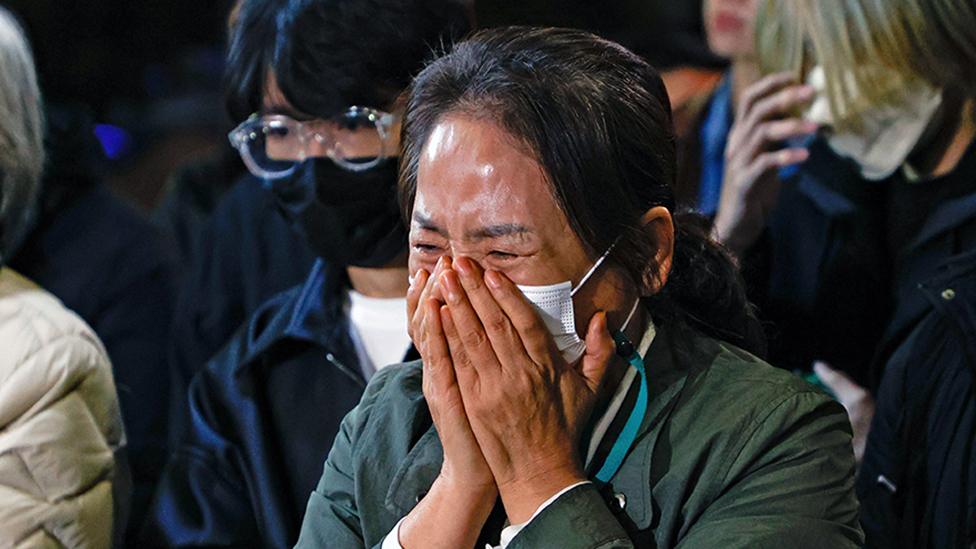'The time to grieve is over, it is time to be angry'
- Published
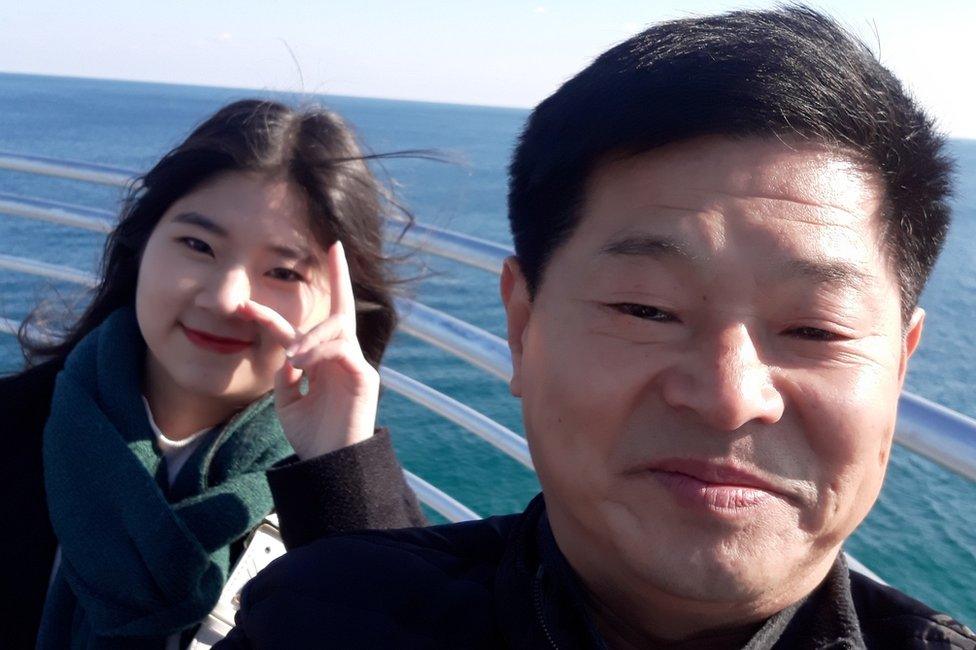
Mr Song lost his daughter Eun-ji in the Halloween crush
At a crematorium outside Seoul, Song Hu-bong carefully attached a miniature bunch of flowers to the box where his daughter's ashes are displayed.
"Hey kiddo, your daddy's here now," he said out loud. "Have you been well?"
His 24-year-old daughter Eun-ji was one of the last victims of Seoul's deadly crush to be identified. She was among more than 150 mostly young women who were killed when a narrow alleyway became so tightly packed they couldn't breathe.
Her family waited 18 agonising hours to receive the news. Doctors told them both her arms had been broken in the crush.
"The time to grieve is over, now it is time to be angry," Mr Song cried in pain, describing how Eun-ji worked as a travel agent in an upmarket neighbourhood of Seoul, with dreams of travelling the world. She had a playful spirit, like him, he says, which meant the two of them got along very well.
"The most heartbreaking thing is that they expected this many people, and they didn't do anything. Just a dozen police and this could have been avoided and my daughter wouldn't have died," Mr Song said.
Almost three weeks on, it is increasingly clear the crush could have been prevented if authorities had been better prepared and had responded faster. Nearly 130,000 people gathered in the party neighbourhood of Itaewon to celebrate Halloween, but no police were sent specifically to manage the crowd.
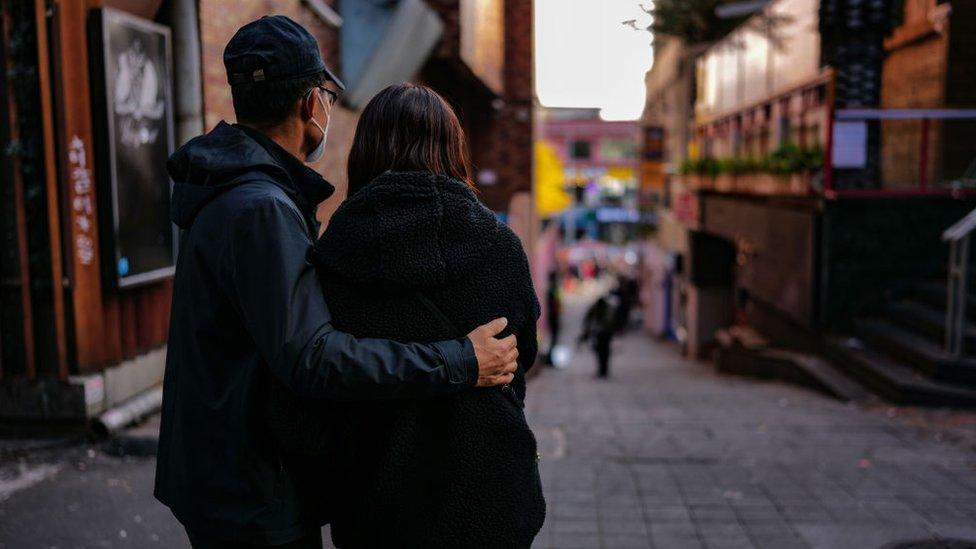
These parents of another victim of the crush visit the alleyway where so many young people lost their lives
Investigators are looking into claims that a police report, which warned of the potential danger, was buried, then deleted.
And South Koreans are debating how far the blame should extend amid fear that the wrong people are being targeted.
So far no-one has taken responsibility. There have been no high-profile resignations. This is only making people angrier.
"Someone very high up needs to take responsibility for this," Mr Song said.
South Korea's President Yoon Suk-yeol has promised to hold all those culpable to account, but at an anti-government protest thousands turned out to demand his resignation.
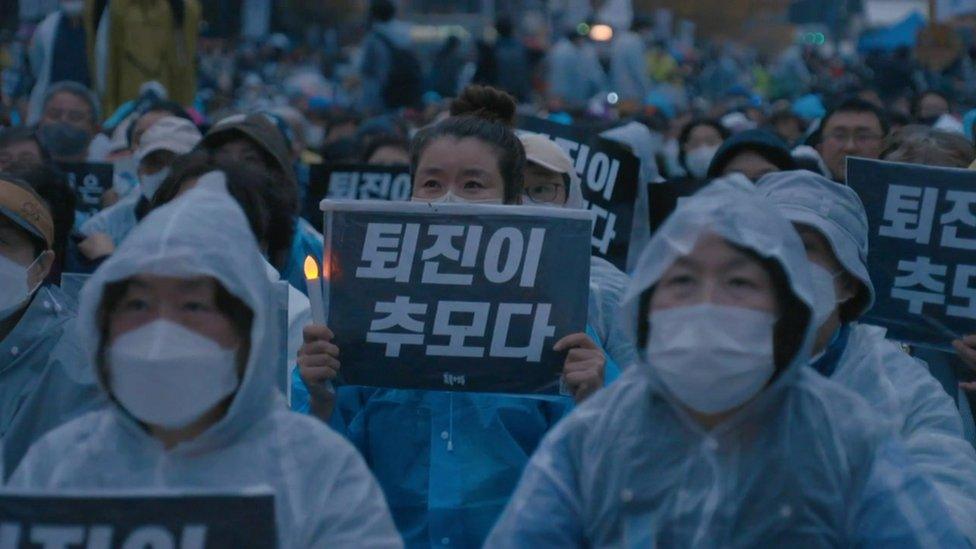
Anti-government protesters have been demanding the resignation of President Yoon
This evokes memories of South Korea's last major tragedy, the sinking of the Sewol ferry in 2014, which killed 250 schoolchildren. The mishandling of that crisis was a major factor in bringing down the President at the time, Park Geun-hye.
President Yoon cannot afford to make mistakes. He entered office six months ago with the narrowest of wins, only to watch his approval rating plummet following a series of gaffes at home and abroad. At one point his approval dropped below 25%. He is least popular among young people, the generation whose friends were killed in Itaewon.
Most of those protesting would have come regardless of Itaewon, but this has given them another reason to rally against Mr Yoon.
"I'm angry because he hasn't taken responsibility," said 27-year-old Lee Ji-ye. "He should have apologised, but instead he is trying to shift the blame onto those lower down."
So far, the investigation into what went wrong has focused on the response of the local police and fire departments. The revelation that police failed to respond to emergency calls made hours before the crush has shocked people, but few feel blaming emergency services alone is the answer, especially when the lack of preparation ahead of the night is so glaring.
The police and fire services say they are being scapegoated to save politicians, a move they have labelled "cutting off the tail".
On Tuesday, the firefighters' union took the unusual step of suing the interior minister, who is in charge of public safety, forcing the police to investigate him. They are challenging the government's line that because the night was not an organised event, it was not clear who was responsible for keeping people safe.
"This was a preventable disaster, so we need to hold accountable the people who could have prevented it," said Go Jin-young, the union head.
"In South Korea we rarely hold those in overall authority responsible, but this is an important step in preventing the next disaster," he said, adding how heartbreaking it was to watch his firefighters, who risked their lives to save lives, being criticised.
Even the survivors and the families of the bereaved feel they and the loved ones they have lost are being blamed for going to Itaewon in the first place. This has left many scared to speak out. One survivor told us she was haunted by a comment on social media, asking why taxes were being spent on helping those who had been injured while out drinking.
The police cordons that sealed the alley have now been lifted, but most of the restaurants and bars leading off from it remain closed, while those that have reopened sit empty.
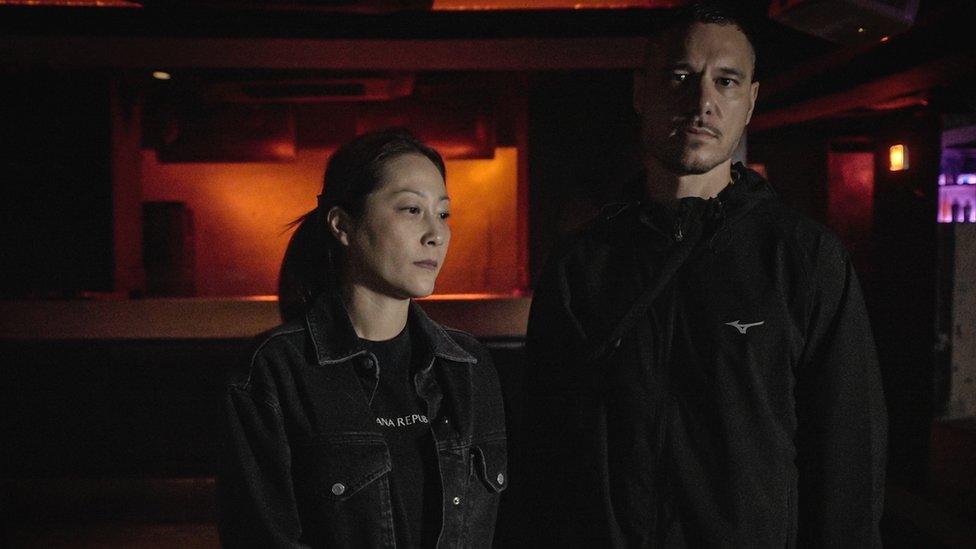
Sunny and Sam want Itaewon's nightlife to be better regulated
Halloween decorations still adorn the walls of Cake Shop, a much-loved basement club at the end of Itaewon high street. Its owners, Sam Swanson and Sunny Won, have been unable to face the clean-up. Sam Swanson is worried the whole neighbourhood could be scapegoated, to cover up bigger problems - problems that stem from the fact there is still a stigma attached to nightlife in Seoul.
"We now have a far larger night-time economy than most major cities on earth, but it has not always been supported," he said. "Itaewon is a very unique and special place. It is home to marginalised people, the gay community, trans community. It's very easy to find a marginalised community, and put the blame on them."
Instead, Mr Swanson wants to see the city's nightlife celebrated and properly governed, perhaps through the introduction of a night mayor. Demanding the president go is a distraction, he thinks, that would not bring about the necessary change.
The partners are hopeful their club will survive. "This city always keeps moving, it is brutal. So, we'll keep moving too because we have to." He tailed off as his tears formed.
But the scars are still fresh. In the alleyway outside, a young woman curled herself into a ball on the floor. In the dark and the rain, she sobbed into the paving stones.
Another, older woman shouted, "I'm so angry these kids, the same age as my children, had to die on the street."
Before leaving his daughter's crematorium, Mr Song visited the urn of another of the Itaewon victims. He desperately wants to meet the other bereaved families, so they can find comfort in each other, but says authorities won't put them in touch.
He cannot understand why they are being kept apart. Perhaps it is to stop them taking action, he wondered.

You might also be interested in:
WATCH: Mother of K-pop star Lee Ji Han demands action after Itaewon crush
Related topics
- Published1 November 2022
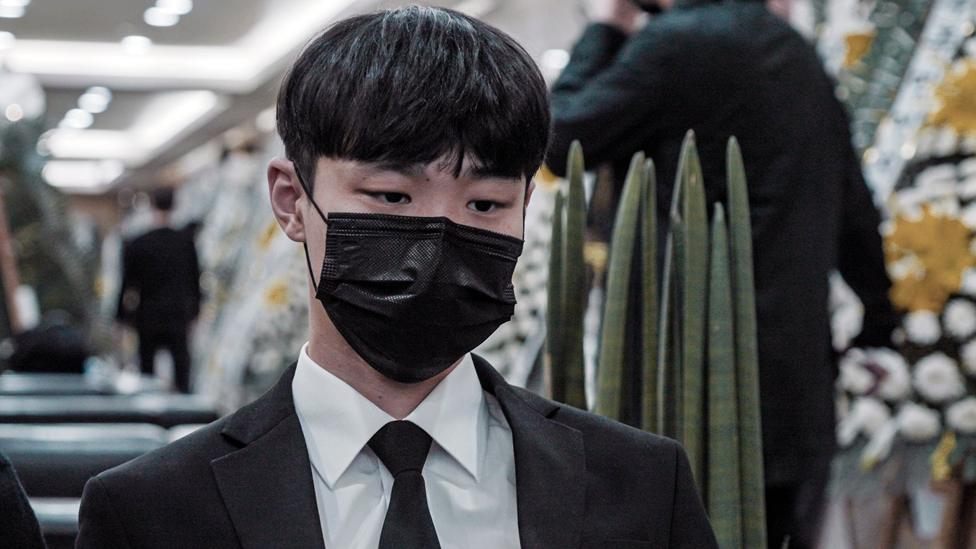
- Published2 November 2022
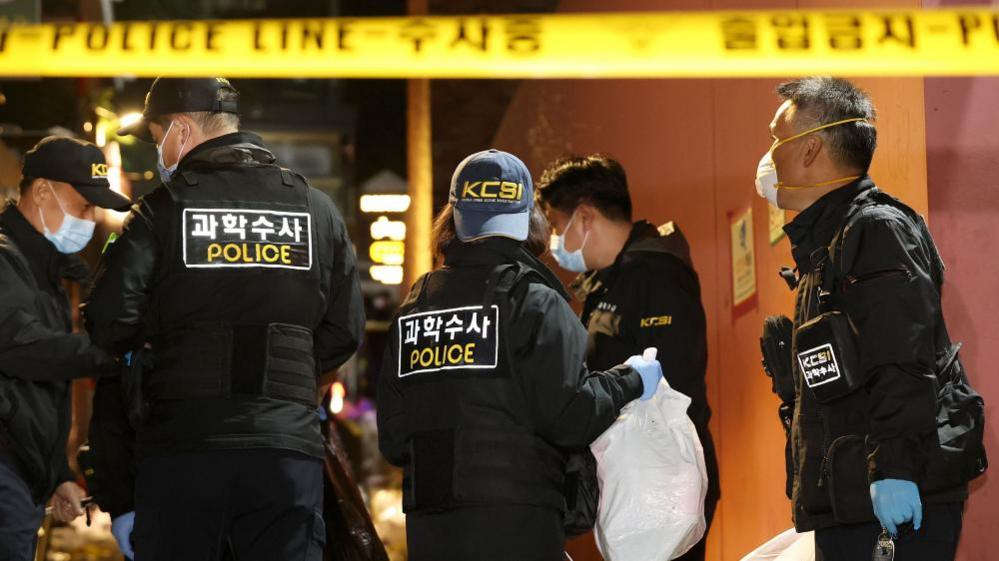
- Published2 November 2022
